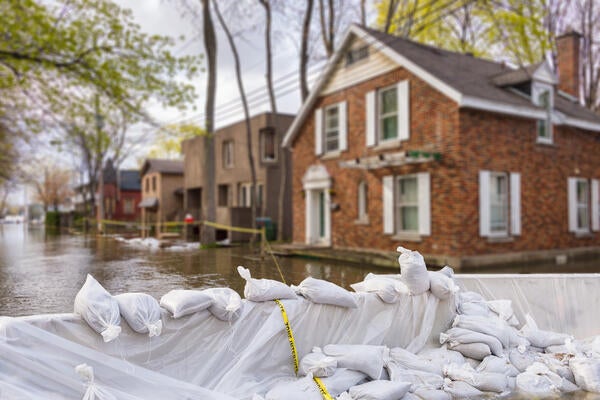
Nurturing community through cultural engagement
UWaterloo student Pallavi Thapar embraces cultural connections to successfully navigate the transition to university

UWaterloo student Pallavi Thapar embraces cultural connections to successfully navigate the transition to university
By Valerie Vaz University RelationsNavigating the transition to a new country to attend university can be a daunting task, fuelled by numerous uncertainties and challenges. Pallavi Thapar, an Honours Arts and Business student from New Delhi, India, was able to overcome these challenges by finding community through Waterloo’s Indian associations and organizations.
 Thapar recalls that an Instagram post, inviting first-year students to connect, was a catalyst for forming friendships even before she set foot on Canadian soil. She was able to connect with other incoming students to share the excitement of their Waterloo adventure over tea.
Thapar recalls that an Instagram post, inviting first-year students to connect, was a catalyst for forming friendships even before she set foot on Canadian soil. She was able to connect with other incoming students to share the excitement of their Waterloo adventure over tea.
“Prior to coming to the University of Waterloo, the longest I’ve ever been away from home was only 15 days,” Thapar says. “These early connections not only eased my fears of leaving home but also provided invaluable support as I navigated the complexities of travelling to Canada.”
She remembers her initial days at Waterloo were filled with events, which focussed on connecting students within the same program and/or residences. Thapar found these events promoted engagement and created a welcoming environment coupled with supportive energy, where everyone felt welcome to share more about their heritage and where they came from.
The Waterloo Undergraduate Student Association (WUSA) and the International Peer Community from the Student Success Office (SSO) were crucial to Thapar's sense of feeling like she belonged, as both served as conduits for celebrating her Indian roots. She describes attending events with UW Dhamaka and the Indian Cultural Association as channels that gave her the opportunity to celebrate her culture.

These groups not only provided avenues for cultural celebration but also served as vital connections for Thapar and her peers, fostering a sense of community and belonging on campus. Looking forward, she is eager to join UW Mehfil, a club that harmonizes classical Indian music with the vibrant rhythms of Bollywood, which she anticipates will further enrich her university experience and sense of connectedness to Waterloo.
While Thapar remains dedicated to fostering community connections, her academic goals remain her top priority. Initially, she faced challenges adjusting to the Canadian University learning, teaching, which emphasizes the practical application of theory.
"During the early stages of my academic journey, I encountered difficulties adapting to this style of learning. However, I was always encouraged by my professors to ask questions, and I did just that," Thapar says.
Her advice to incoming students resonates with her own journey: "Embrace the diversity around you, challenge yourself to step out of your comfort zone while finding community in those around you. And remember, always ask for help or support when you need it- someone is always there to help. But more importantly, cherish every minute of your journey, time flies when you're making memories.”
The University of Waterloo is committed to supporting students in finding a community where they can belong, succeed and grow. To learn more about student life, recreation and athletics, clubs and other services, please visit the Current Student website.

Read more
To meet our AI ambitions, we’ll need to lean upon Canada’s unique strengths

Read more
Researchers awarded funding to investigate ecology, climate change, repatriation, health and well-being through cultural and historical lens

Read more
Waterloo researchers propose solution to help communities escape the costly cycle of flood damage and rebuilding
The University of Waterloo acknowledges that much of our work takes place on the traditional territory of the Neutral, Anishinaabeg, and Haudenosaunee peoples. Our main campus is situated on the Haldimand Tract, the land granted to the Six Nations that includes six miles on each side of the Grand River. Our active work toward reconciliation takes place across our campuses through research, learning, teaching, and community building, and is co-ordinated within the Office of Indigenous Relations.